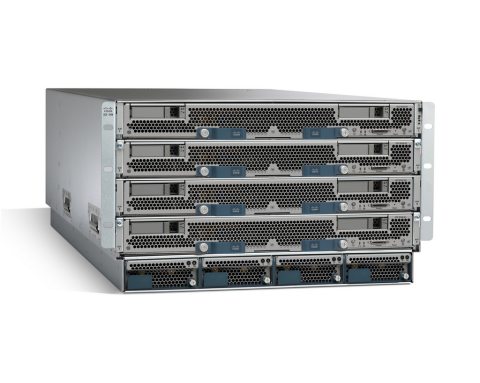Cisco CEO Chambers: IBM a friend; HP a foe

As the tectonic plates shift below the data center the vendor lines are becoming more clear. HP and Cisco are on a collision course and IBM appears to be playing Switzerland's neutral act nicely.

“There are times when you move into new markets, like the data center, and the incumbents view that as a challenge. IBM is a partner -- we’ll see how tight the partnership develops. That’s kind of a work in progress on both sides. HP is clearly a competitor.”
Also see: Cisco's Q4: Things are looking better - but let's not get too happy just yet
On the networking front IBM has spread its networking bets to Juniper, Brocade and Cisco. After Cisco announced its server and data center plans, IBM quickly hooked up with Juniper and Brocade. In IBM's latest missive it noted that Cisco is a long-time partner. Translation: Big Blue will happily take the services revenue. The thaw in the Cisco-IBM relationship suits both sides.
You can expect this data center vendor bluster to ramp up as the stakes grow. Cisco's server push has attracted interest, according to a Goldman Sachs survey. On Cisco's earnings conference call, Chambers said:
I think in most of the surveys that have come out when they talk about where we are in terms of gaining share in the data center and in the architectural play and server technologies etc. they are saying the odds on us being successful are very high. And they have been pretty candid; they think that’s much higher than our peers’ ability to come into our traditional market. We have a lot of respect for large peers’. They are very, very good in the marketplace, but we are more than holding our own both on the competitive landscape as well as the channels.
Simply put, Cisco is hellbent on getting a large slice of the data center market with its unified computing system (UCS).
If you begin to think about our ability to grow the UCS system or the ability to grow an architectural play in the data center, suddenly we are playing for a $100 million, $200 million, $300 million type of opportunities. Now, without mentioning companies by specific names, but at least in one of these scenarios that you talked about I would be surprised if don’t expand our market share outside of our traditional areas dramatically as we move forward. So all of a sudden, we are a player in the data center in terms of permission to participate. The customers have been remarkably receptive to us playing here. We are in very good shape in terms of our initial pilots and program. Now, we got to deliver on those and if we do using the surveys as well as I have, most of the enterprise customers are giving us an opening that if we make our initial project successful and both in the excess plays and the UCS plays, we are going to get a chance to play much more aggressively even if the market were to say at a given static level. $85 billion is a lot of money, of which we are getting a very small slice of the pie today.
The road ahead for Cisco's data center push may be lumpy, but that battle lines are drawn. Morgan Keegan analyst Simon Leopold reckons that Cisco has little to lose:
We still see challenges from increasing competition (e.g., Hewlett Packard partnered with Alcatel-Lucent, IBM partnered with Brocade and Juniper, and private Chinese vendor Huawei’s expansion outside of China), mix shifts pressuring margin and a jobless recovery. We remain optimistic regarding Cisco’s Data Center initiatives; even though spending may not recovery rapidly, Cisco’s prospects to gain share can enable growth.